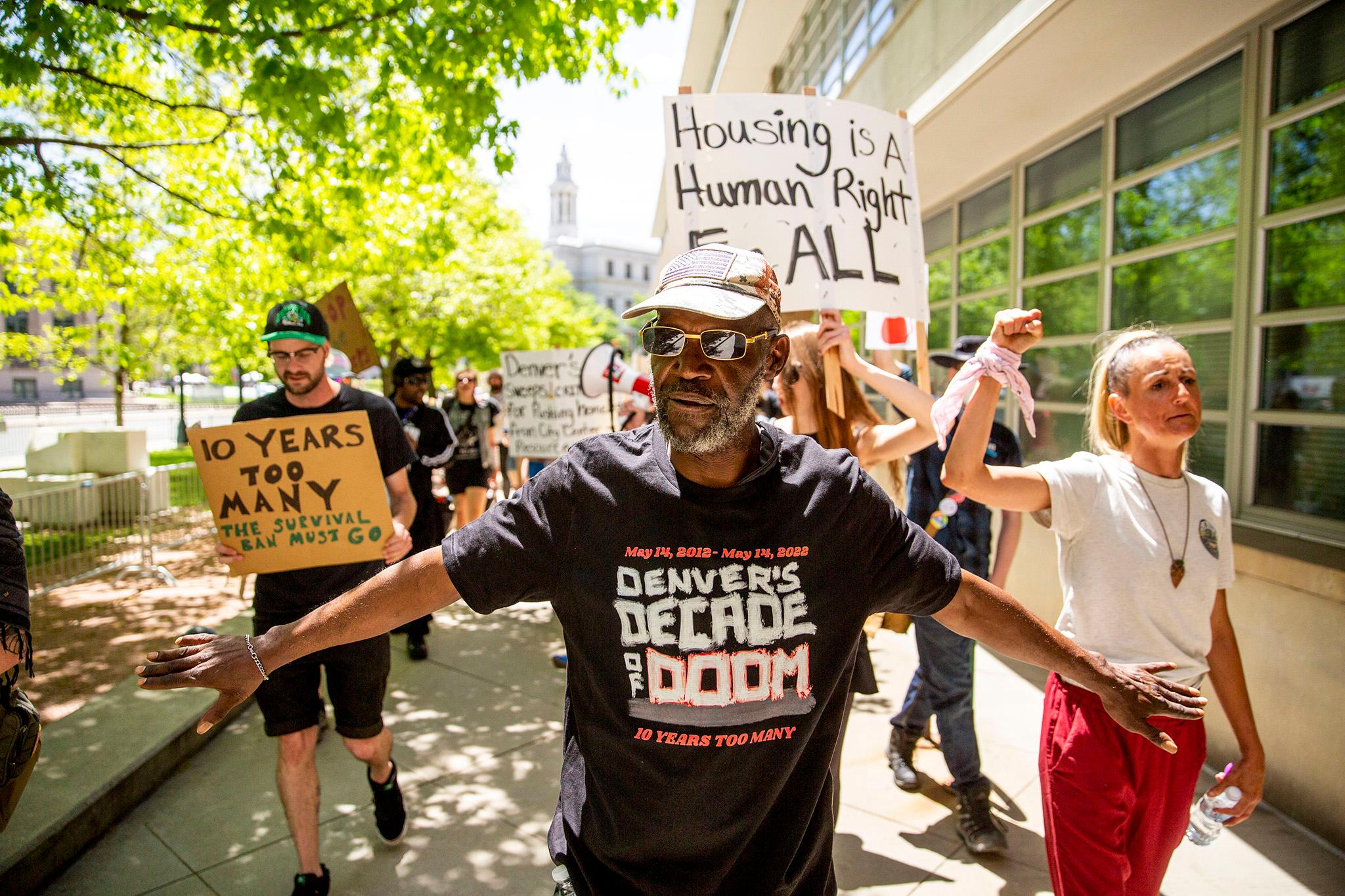A decade ago, 61-year-old Randle Loeb prayed in the Denver City Council chambers as lawmakers decided whether to outlaw unpermitted camping. The sometimes homeless housing activist didn't waste much time sharing his opinion during the meeting; lawmakers knew he thought the ban was bad policy. Instead, he prayed they'd listen to others.
Nearly nine months of debate weighed on the council members as they looked down from the dais. They had attended meetings, read letters, took calls and even received death threats. Most of the lawmakers knew their stance, no matter the volume of opponents.
"Let us pause in silent witness to listen to our hearts," Loeb begged during the public comment period. "Across the region, people are gathered in places listening, wondering what you are going to do and how this will look across the nation. How will people regard this plan that was created to end the tragic experiences of many whose lives were affected by dire poverty from the beginning?"
Those who supported the ban argued it would help clean up the streets of downtown Denver, push unhoused people into housing and mental health treatment, and reduce crime and sanitation issues. Opponents argued the law would lead to mass arrests and make matters worse.
Council president Chris Nevitt had expanded the courtesy public comment period Loeb began to two hours.
He ensured each side alternated turns -- a balance of perspective that did not reflect the scales of opinion in the room. Still, dozens of people, mostly opponents of the ban, wouldn't get the chance to speak, then-councilmember Paul López recalled weeks later, when it came time to vote.
When councilmember Debbie Ortega asked people to stand if they opposed the ban, the vast majority, many homeless themselves, rose. When she asked people to rise if they supported the ban, a handful stood.
Opponents decried the proposed law as inhumane, un-Christian and cruel. They cheered on their allies with robust applause and tried to shout down their opponents, to the disdain of Nevitt, who bruised his gavel trying to control them.
Sprinkled among the many critics were heavyweight Denver boosters: suited leaders of Visit Denver, the Downtown Denver Partnership, the Civic Center Conservancy, and the Lower Downtown Neighborhood Association, along with restaurateurs, hotel managers and downtown residents. The proponents said they wanted Denver to be a magnet for tourists and a place where residents could enjoy life without seeing streets littered with sleeping bags, liquor bottles, needles and homeless people.
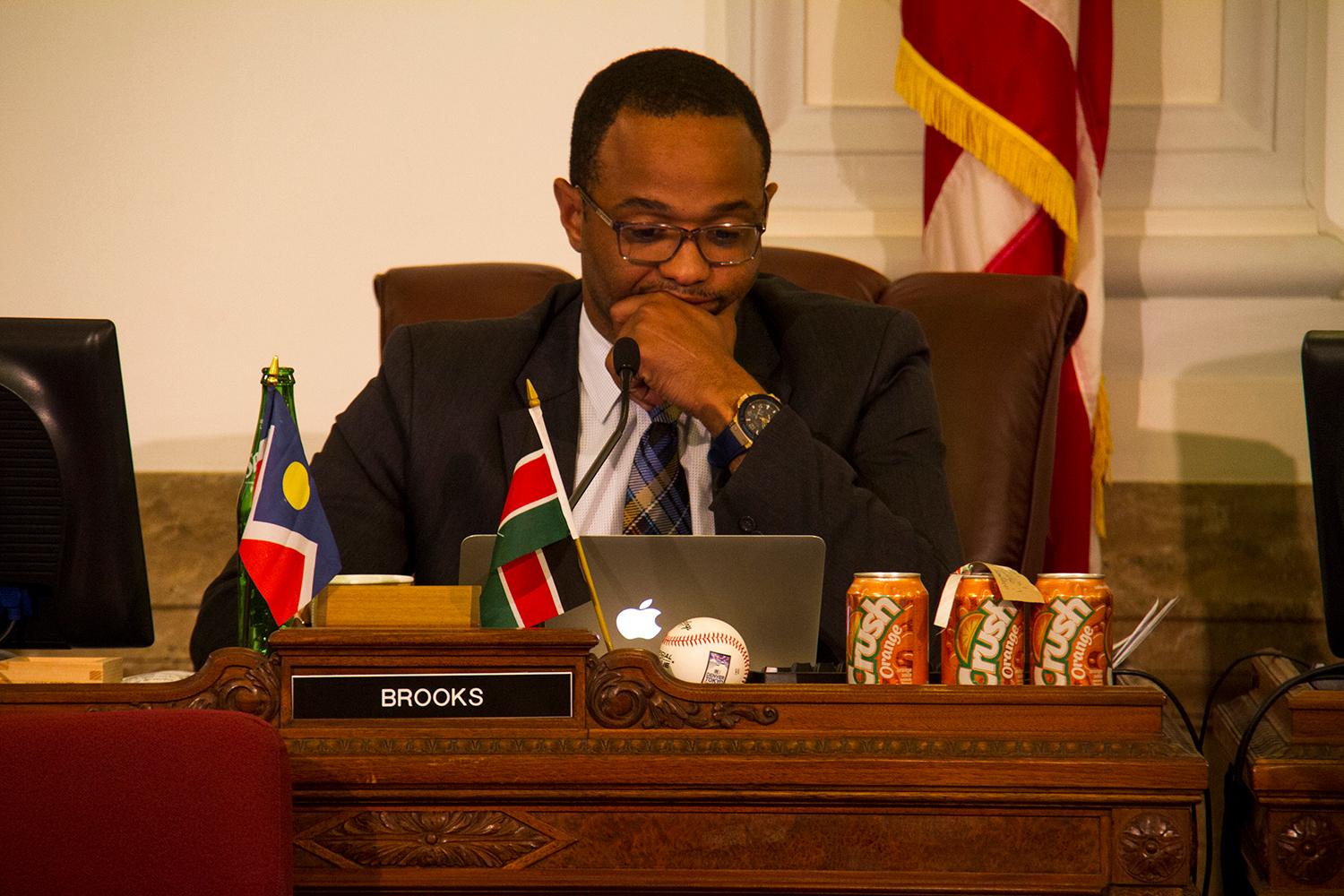
Drafted by councilmember Albus Brooks, the policy was intended to increase safety and cleanliness citywide and support the beleaguered business community, tired of cleaning up feces and kicking unhoused people off their property. The ban was billed as a compassionate solution to homelessness.
The law would also blot out the last traces of the anti-capitalist Occupy Denver encampment at Civic Center Park, which launched in fall of 2011. Though police had broken up the camp and the protests had fizzled, some participants were back to sleeping on the grass.
If the ordinance passed, city agencies would have authority to arrest people for sleeping on the street if they refused shelter. Many unhoused people testifying asked: What shelter?
The Colorado Coalition for the Homeless has always opposed the camping ban. At that council hearing 10 years ago, John Parvensky, the nonprofit's longtime director, cautioned the bill would backfire.
"In my 26 years working to address homelessness here in Denver and throughout the state, I never dreamed that we would be here tonight debating the wisdom of criminalizing homelessness," he said at the meeting. "Now I know that there are many of you who do not like that term, 'criminalization'; however, it is our belief that given the fact that there are not sufficient emergency shelter beds to house everyone who needs it tonight, this ordinance would effectively criminalize the act of sleeping for those who have no other options."
Making sleeping on the streets a crime would not fix things, he argued.
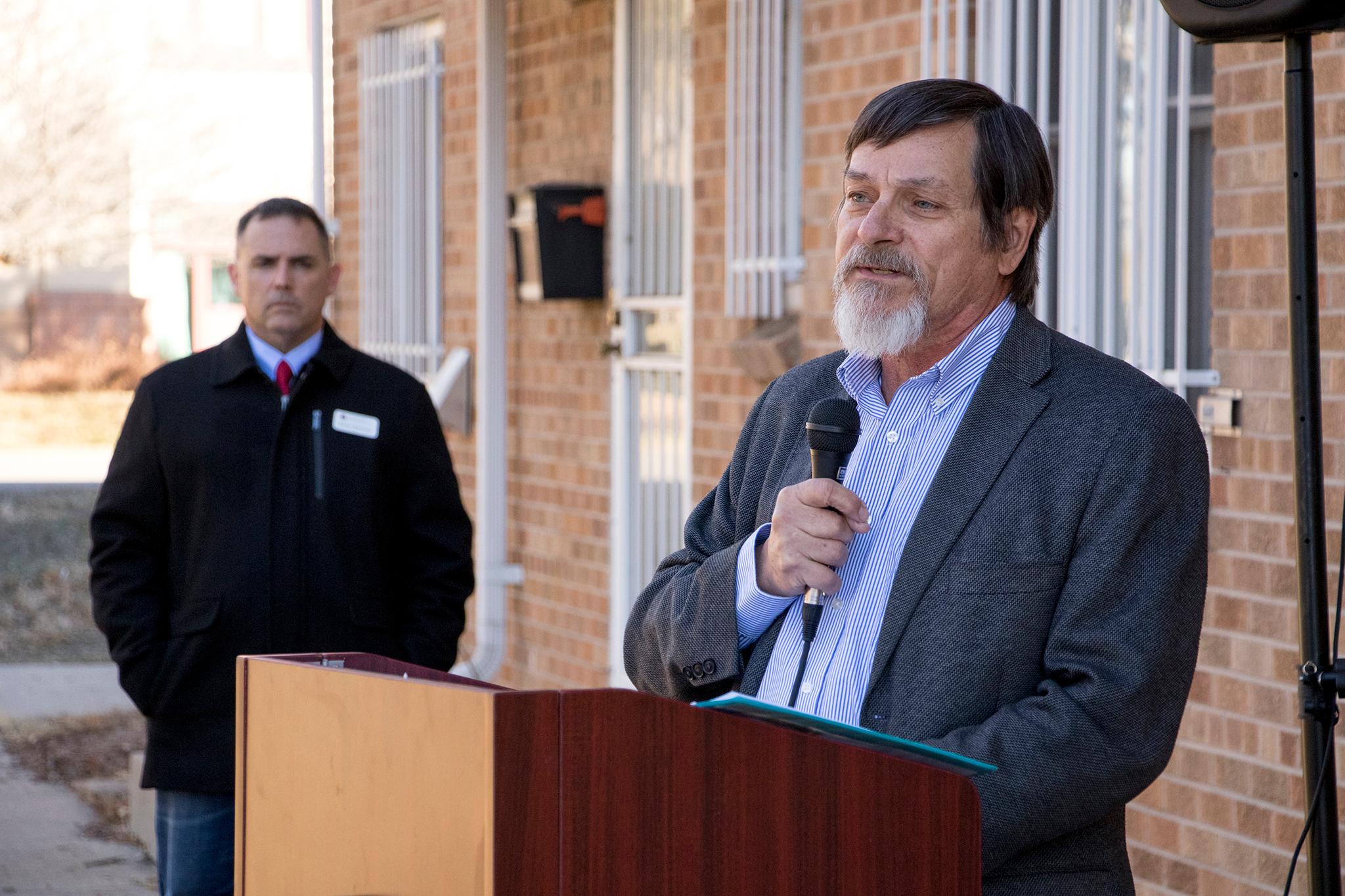
"We believe this ordinance will be counterproductive, forcing those without shelter further into our neighborhoods, further out of sight, making outreach and engagement even more difficult, and creating additional barriers to housing and employment for those that we are trying to help," he said. "We believe that the right course is to create real solutions to the lack of housing and shelter by creating and expanding emergency shelter, expanding access to mental health and substance treatment services, and developing long-term supportive housing resources."
A decade later, everything he predicted came true, Parvensky recently told Denverite.
The Downtown Denver Partnership championed the ban.
"Downtown is for everyone," said the group's head Tami Door at the council hearing. "However, we recognize that certain behaviors can cause severe impacts on the downtown environment. Unauthorized camping is a significant problem that affects businesses, residents, workers and visitors that frequent downtown. And unfortunately, this problem is getting worse...
"At this point in time, we absolutely need to foster a safe and humane environment in downtown," she added. "And it requires both incentives that allow and encourage individuals on the street to seek meaningful change in their lives, and also to provide consequences for those who refuse assistance and continue to engage in behaviors that threaten public safety and health."
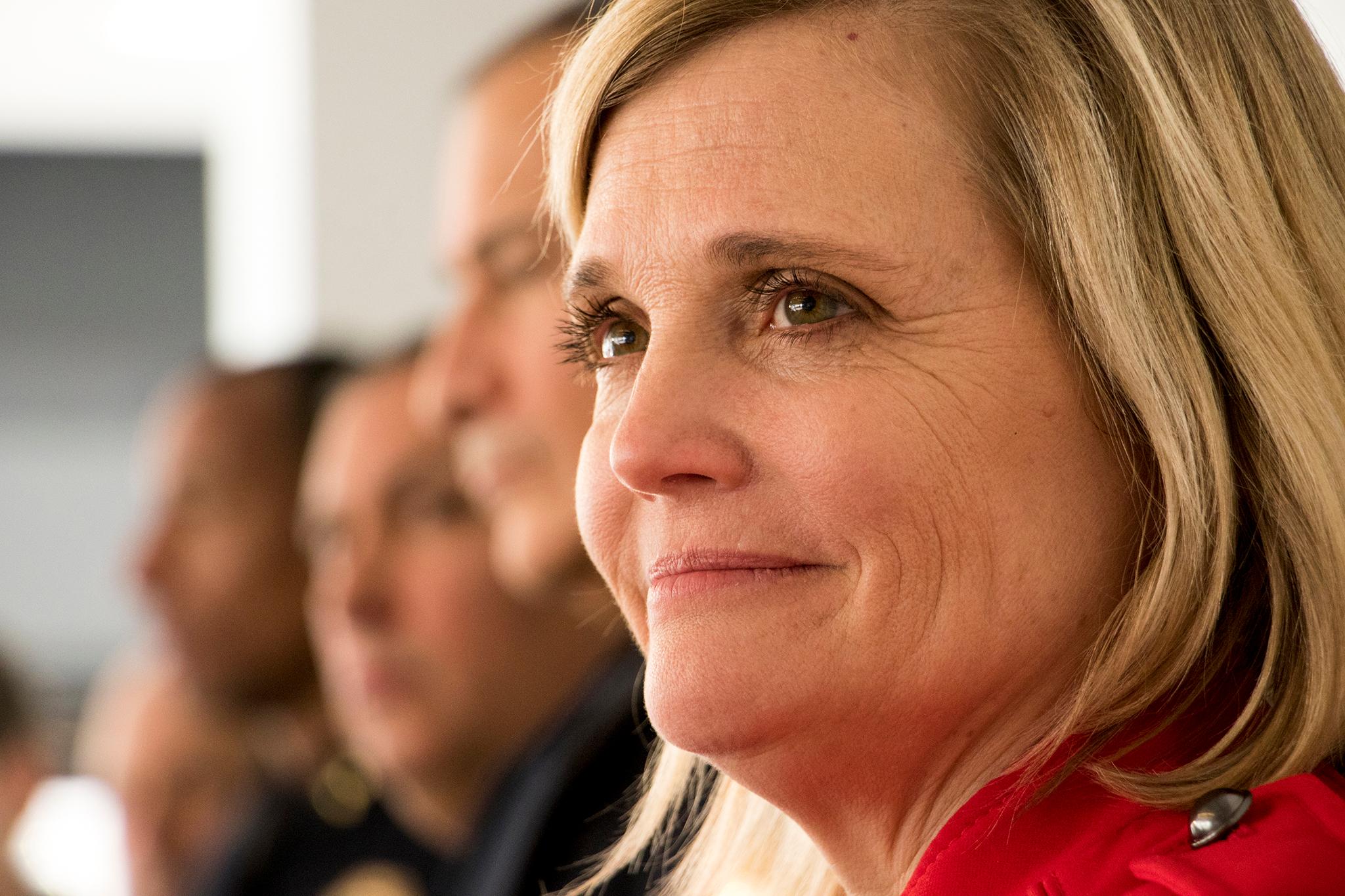
Poor reviews from vacationers meant fewer conventions and visitors, costing Denver tax revenue that helped fund social services, said Visit Denver CEO Richard Sharp at the council hearing, back when tourism was a $3 billion-a-year industry in Denver, creating nearly 50,000 jobs.
"So while it is a top industry, it is 100% dependent on Denver being a clean, safe, humane and inviting city," he said. "One of the top complaints we get is about the number of people sleeping downtown, especially on our No. 1 tourist attraction, which is the 16th Street Mall."
Denver's reputation was already suffering, he said.
"I will tell you, there's not enough marketing dollars to overcome something like this," he said. "I've seen it happen to cities who have been labeled as crime-ridden and unsafe. It takes cities millions and millions of dollars of advertising to bring people back."
By 2019, Denver's tourism industry was booming, with 1,026 conventions, 17.7 million overnight visitors and $7 billion in revenue. By 2020, the city was on track to break records in the tourism industry, before the pandemic obliterated it.
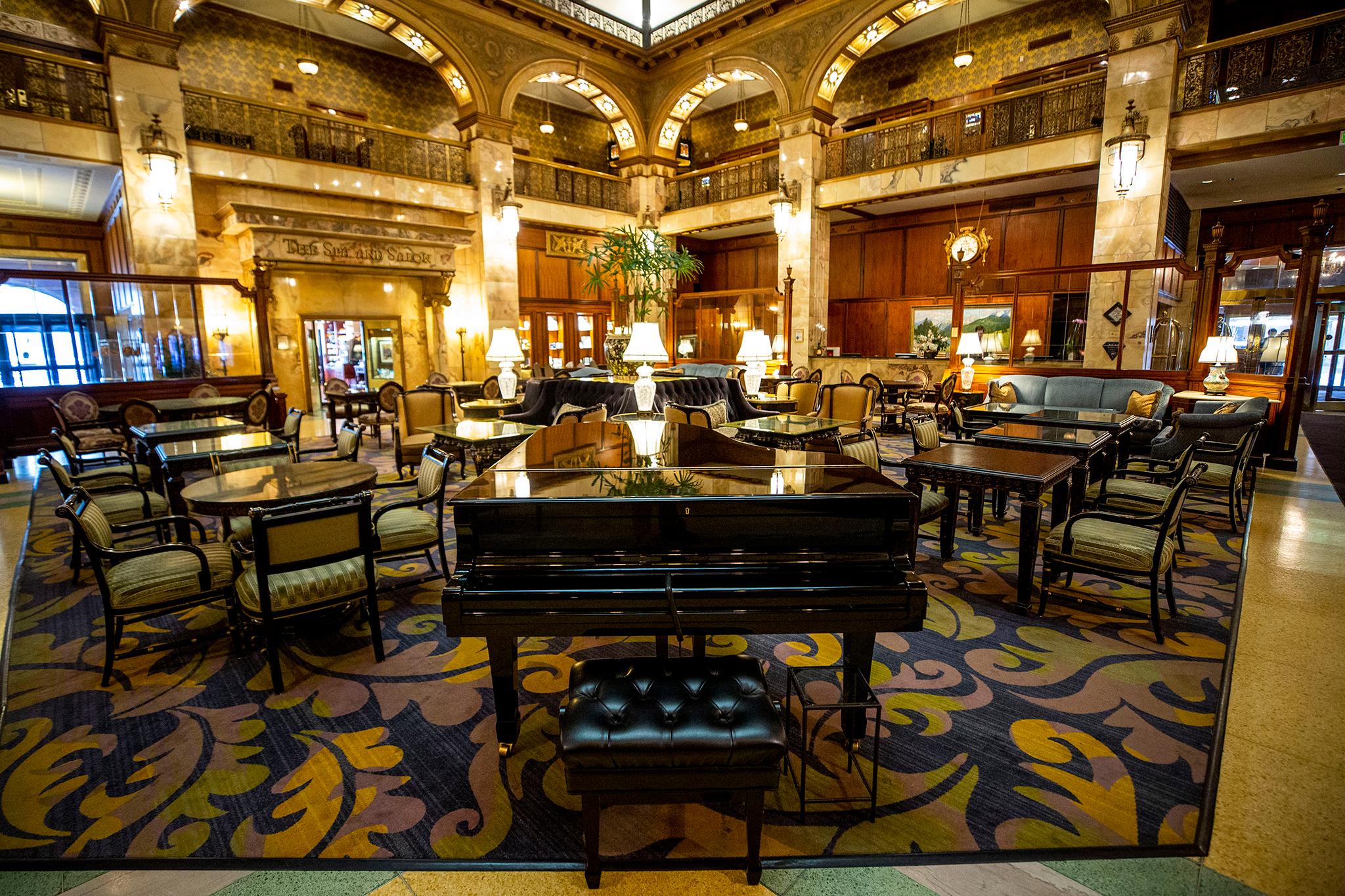
Business owners from Snooze, the Brown Palace, Luxe Salon, and the Grand Hyatt offered their support for the ban. Luxe owner Laurie Helmick wonderd if Denver was ready for all the new development that was coming to the area.
"With Union Station Plaza being built as we speak, if this ordinance isn't passed, the same challenges -- not problems -- challenges on the Mall will happen on the plaza," she said at the meeting. "And that is a block from my business. And I have been down there 24/7, for many years, and I have seen it get worse."
Despite the camping ban, in 2022, Union Station has seen more arrests than any other neighborhood in the city. Most of them are for drug charges. Homelessness service providers are on site weekly, and many unhoused people stay there for warmth through the winter months.
At the 2012 council hearing, a throng of people experiencing homelessness, social workers, doctors, clergy and other advocates asked lawmakers to vote down the ban at the hearing and stop criminalizing homelessness.
People shared painful stories about living without a home. They described many factors -- from mental disabilities to safety concerns to a bed shortage -- that made shelters inaccessible.
Clinical psychologist Jennifer Perlman described how most unhoused people suffered from abuse and trauma.
"For many people on the streets, the road to homelessness was long, painful and began in childhood," she said. "The person survived in an environment that was toxic to their development, and without help, they sought relief through drugs or alcohol."
She pleaded with council not to pass the ban, arguing it would re-traumatize victims of childhood abuse.
"The proposed ordinance is an understandable response to our sense of helplessness and frustration in our efforts to end homelessness," she said. "In my professional opinion, the proposed ordinance will not help, will add to the problem, and should not be passed."
A 22-year-old named Rain, who had been homeless since 15, said she went to the streets to escape an abusive home and eventually landed in transitional housing at Urban Peak.
"Everything that I have heard tonight is either compassion or profit -- profit by those who already have money," Rain said. "And either way, it's going to take a lot of money to either lock these people up or help them. Either way, it's going to take a lot of effort and time and patience. The only difference is, I think, that one would work considerably, significantly better than the other. Making it illegal to sleep on the streets would hurt a lot of people."
Weeks later, council met again for one last discussion of the bill.
Ortega, who opposed the bill, spoke of the struggles people face getting into shelters and lamented how new luxury housing had replaced homes people could actually afford.
"We have lost affordable housing -- whether it's downtown, or in neighborhoods like mine, in the Highlands neighborhood," she said. "That housing stock has not been replaced. And we don't have a clear housing policy or legislation that addresses this issue."
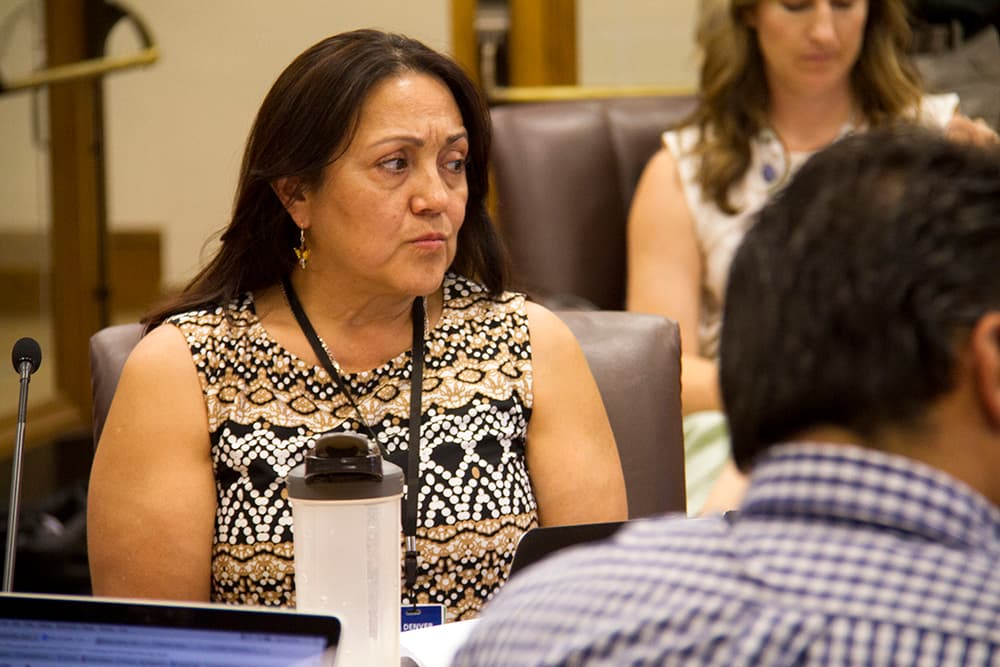
The Cowboy Councilman Charlie Brown, who supported the bill, said: "This is a fight for sanity. It is time we change this culture of chaos in our city."
Councilwoman Susan Shepherd, who had served in office nine months and had been homeless herself, was distraught at the idea of the bill passing.
"My heart is broken," she said, looking to the public in the room. "I want to thank all of you for being here tonight to witness the grave injustice and tragedy that we are about to commit tonight in the name of compassion. In the light of the worst economic recession since the Great Depression, we are on the verge of criminalizing the most vulnerable residents in this city for being just that: vulnerable."
Brooks described meeting with over 100 people -- opponents and proponents alike.
"I maintain this: that it's still inhumane to walk over people downtown, Triangle Park, along the river, Cole neighborhood, all over the city," he said. "So if we're saying no to this bill, what are we saying yes to? What are we doing? And in my mind, we need a first step. And so this is the first step."
Claims that people would be arrested were false, he said, based on language in the ordinance. Arrests, he said, should be a last resort. The city itself was working actively on creating more shelter beds and funding. He promised to push for the city's first 24-hour shelter, where people could stay without worrying about getting a new spot every day.
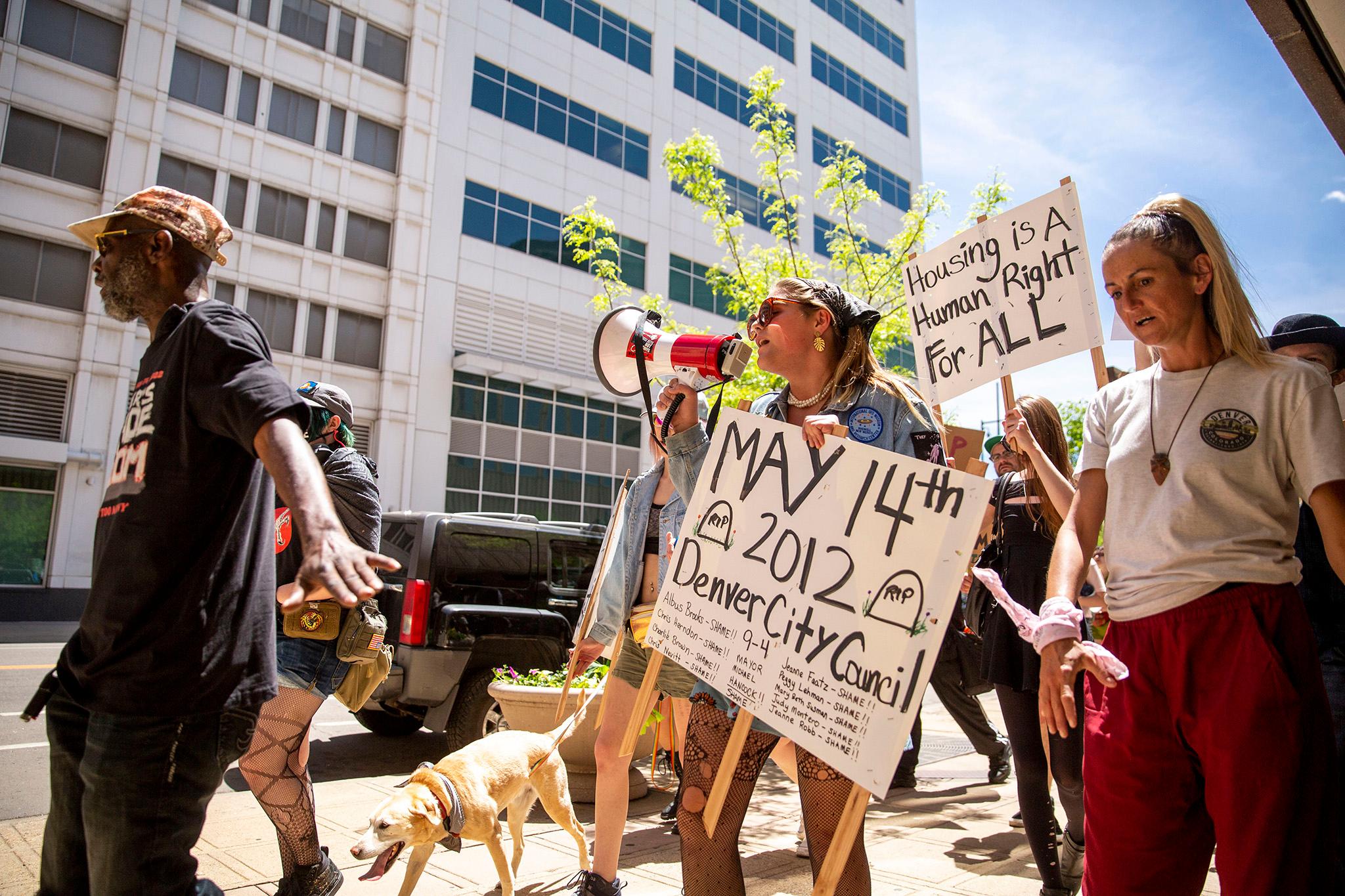
Ultimately, council members Brooks, Nevitt, Judy Montero, Brown, Jeanne Robb, Peggy Lehmann, Jeanne Faatz, Mary Beth Susman and Herndon voted in favor of the bill. Paul López, Susan Shepherd, Robin Kniech and Debbie Ortega voted against it.
On May 17, 2012, Hancock signed the unauthorized camping ban into law, inking what may be the defining policy of his three terms in office.
Years passed...
Elected officials have come and gone. Those who remain from the year the camping ban passed -- Herndon, Kniech and Ortega -- are serving their final terms, alongside Hancock. López left council and was voted in as the Clerk and Recorder. And Brooks is working in affordable-housing development.
Advocates tried to repeal the camping ban in May 2019 with I-300, the Right to Survive bill. At first, the bill polled as a sure win, but after a $2-million-plus campaign against it, more than 81% of Denver voters shot it down, effectively affirming the camping ban.
Three years after I-300 died, homelessness has multiplied in the city. Housing prices have reached unprecedented heights, and Denver is behind more than 50,000 units of affordable housing. In the past decade, 115,000 new people arrived to town, according to the Census; many old-timers cannot afford to stay.
Single-family zoning, in most neighborhoods, still prevents dense housing, shelters and treatment centers from being built across town, so services continue to be concentrated in the center of the city.
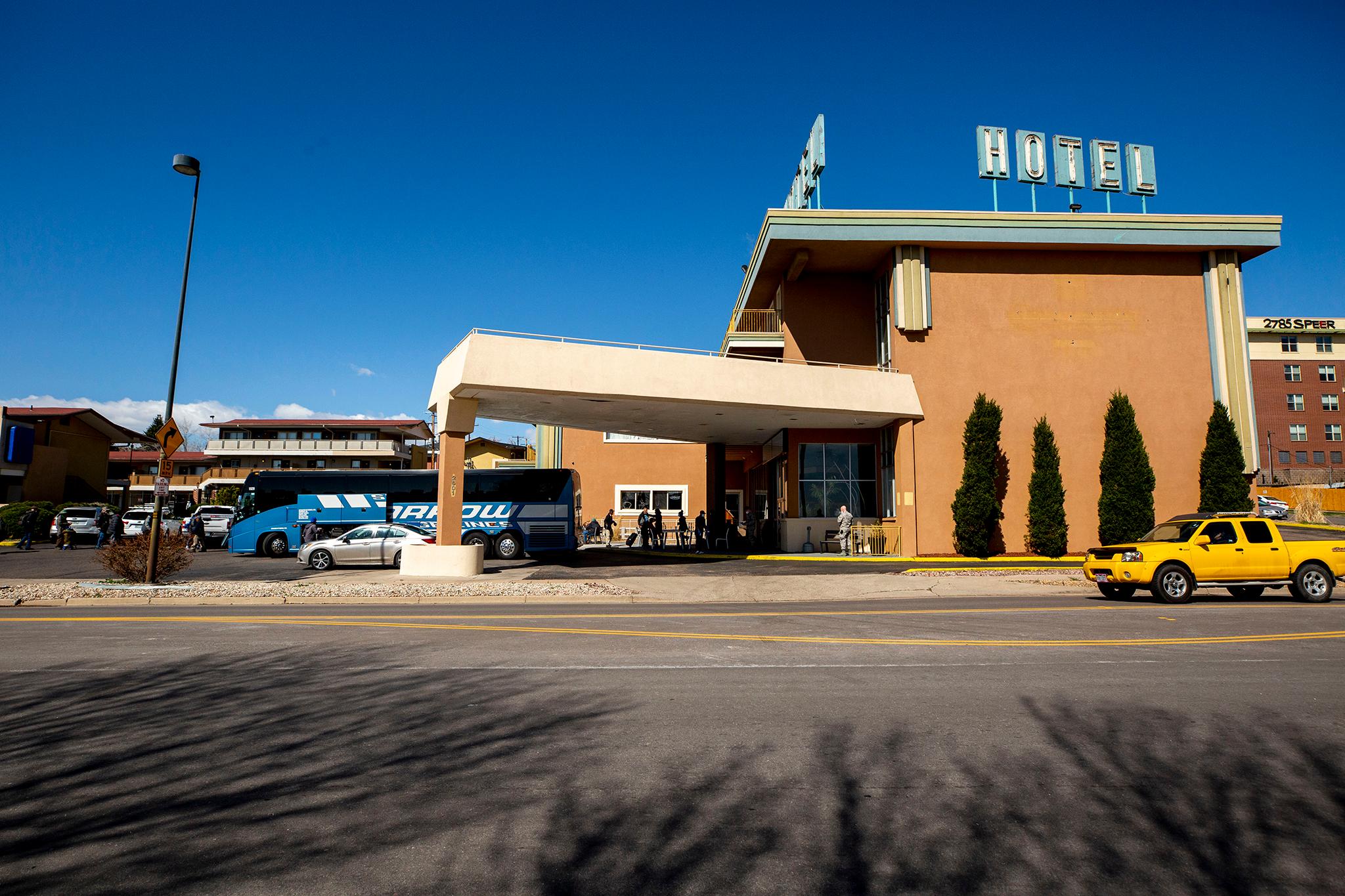
Funding to address homelessness -- particularly during the pandemic -- has also grown. Emergency federal money allowed the city to temporarily expand its offering through extra hotel and motel rooms for those most vulnerable to COVID-19 and build some new housing. Those funds are scheduled to run out by the end of the year, and as a result, services and beds will likely be cut.
Denver's Department of Housing Stability was created in 2019 to replace its predecessor, Denver's Road Home. Spokesperson Sabrina Allie said the city has moved over 11,000 homeless individuals and families into housing, funded more than 8,000 affordable homes, served more than 7,000 people with expanded shelter in the first year of the pandemic and has seen a 60% rise in shelter use. The city now has that 24-hour shelter system that Brooks promised.
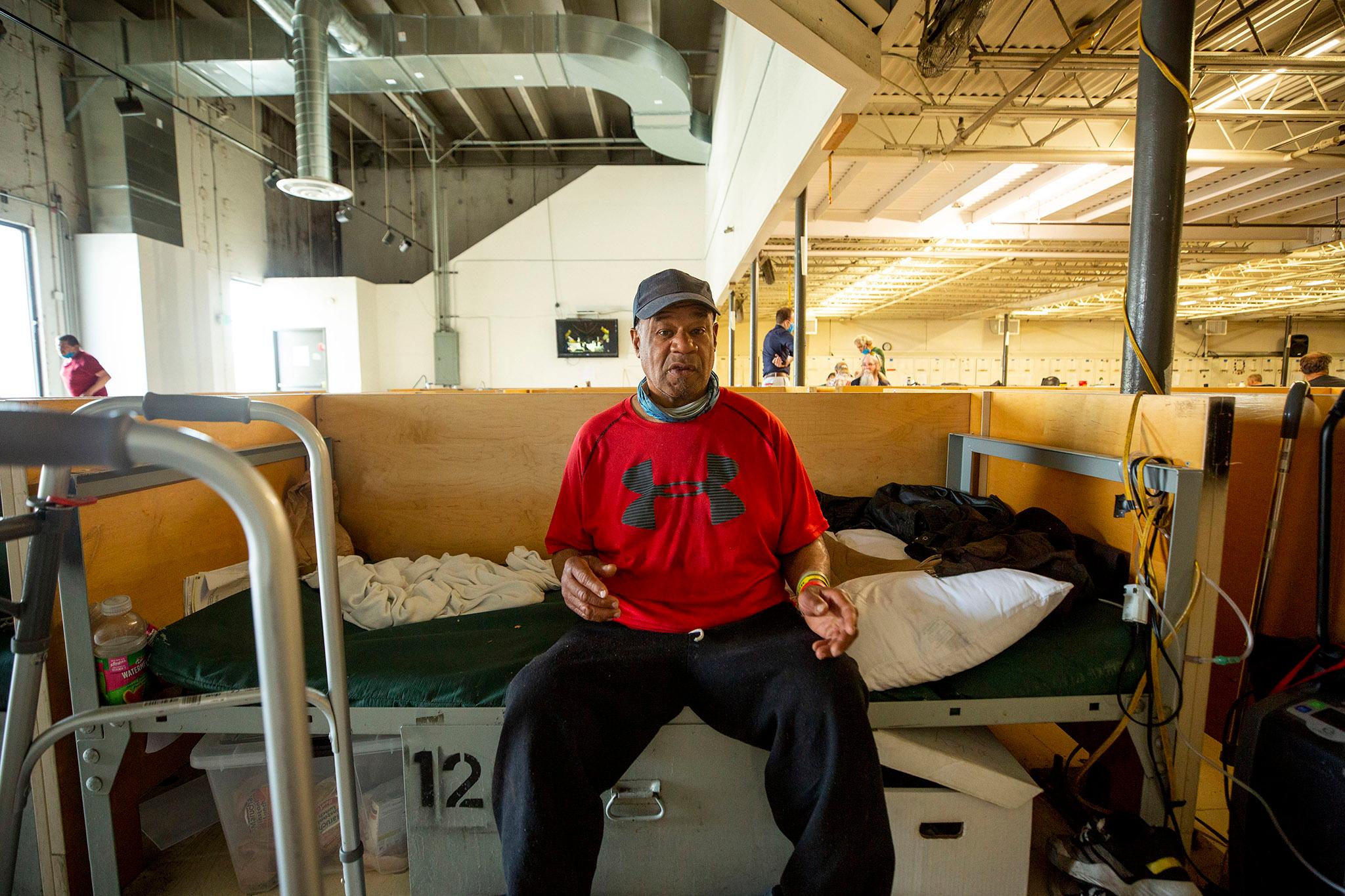
Many shelters have been trained to better accommodate LGBTQ people. Women's shelter offerings have also expanded. The Colorado Village Collaborative has safe outdoor spaces, organized sanctioned camping sites, in church parking lots and the like. Those programs, embraced as a sign of Denver's innovation by Hancock, who initially resisted them, have hefty waitlists.
Council is weighing the Expanding Housing Affordability proposal, which would push developers to do more to solve the housing crisis, both for low-income people and those in the missing middle, who make just under the area-median income and still can't afford to live here.
Clashes over the rights of the housed and people living on the streets continue to make headlines.
The problems proponents of the camping ban described -- open drug use, unsanitary conditions, people sleeping on the street -- have risen, as opponents of the ban predicted.
New organizations like Citizens for a Safe and Clean Denver and the Safe, Clean and Compassionate committee of the Lower Downtown Neighborhood Association are pushing the city to enforce the ban more rigorously. In turn, new homeless advocates with Denver Homeless Out Loud, Mutual Aid Monday and the Housekeys Action Network of Denver (HAND) have been marking the ten year anniversary of the ban with protests.
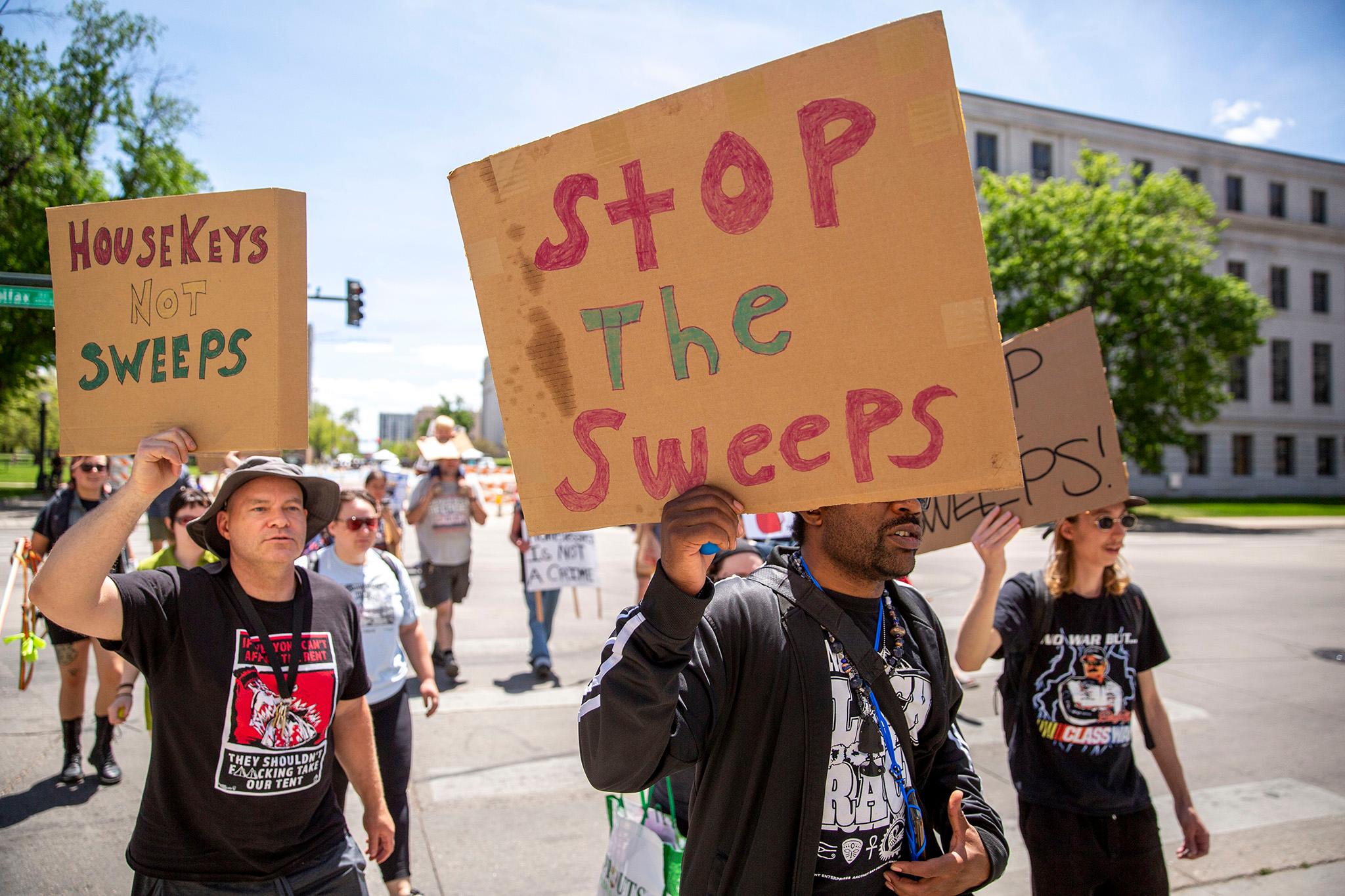
For the past few years, two to three times a week, the Department of Transportation and Infrastructure has cleaned up large-scale encampments, which have spread throughout neighborhoods across the city quicker than they can be disbanded.
DOTI does "conduct large-scale cleanups when we see deteriorating conditions such as excessive trash, human waste and discarded needles, and ask people to move so that we can thoroughly clean to improve safety for all," DOTI spokesperson Nancy Kuhn said. "These cleanups are not connected to the unauthorized camping ordinance."
Many unhoused people say they lose their belongings and their lives are destabilized every time they are displaced. Proponents of the sweeps clamor for more.
Union Station has been remodeled, and despite the ban, has become a nexus of homelessness, drug use and complaints about crime. Most arrests on site are for drug-related offenses and outstanding warrants, a Denverite investigation found.
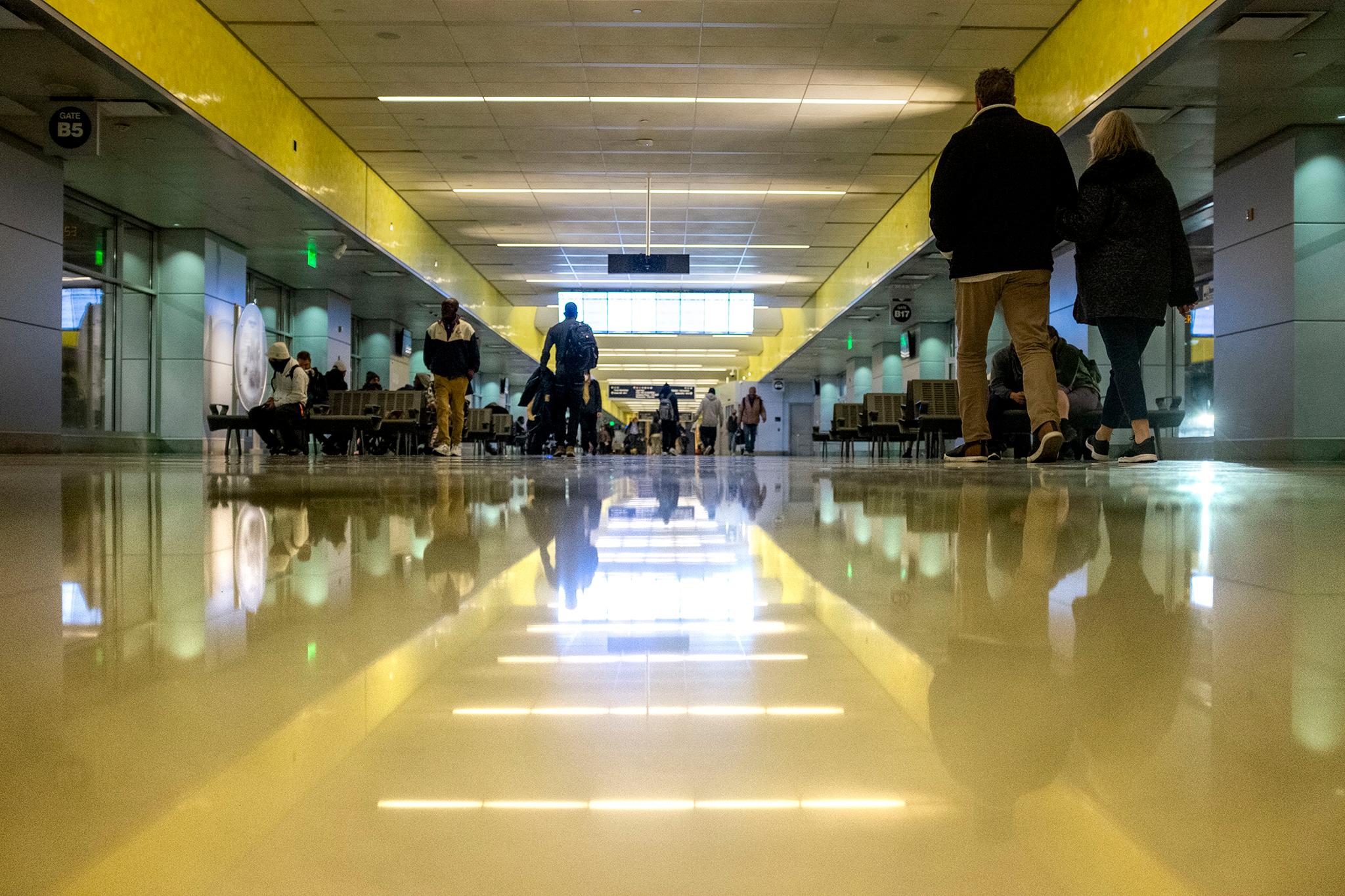
As for the worry that the camping ban would lead to mass arrests, that has been proven unfounded. As of March 20, Denver police said they had arrested three people and ticketed another 45 for violations of unauthorized camping since the law passed.
Some camping ban proponents with Safe and Clean Denver say residents lack resources when encampments arrive in their neighborhoods.
"With the many tents and encampments around Denver today, it's difficult to imagine there is a ban," wrote Safe and Clean Denver to its followers.
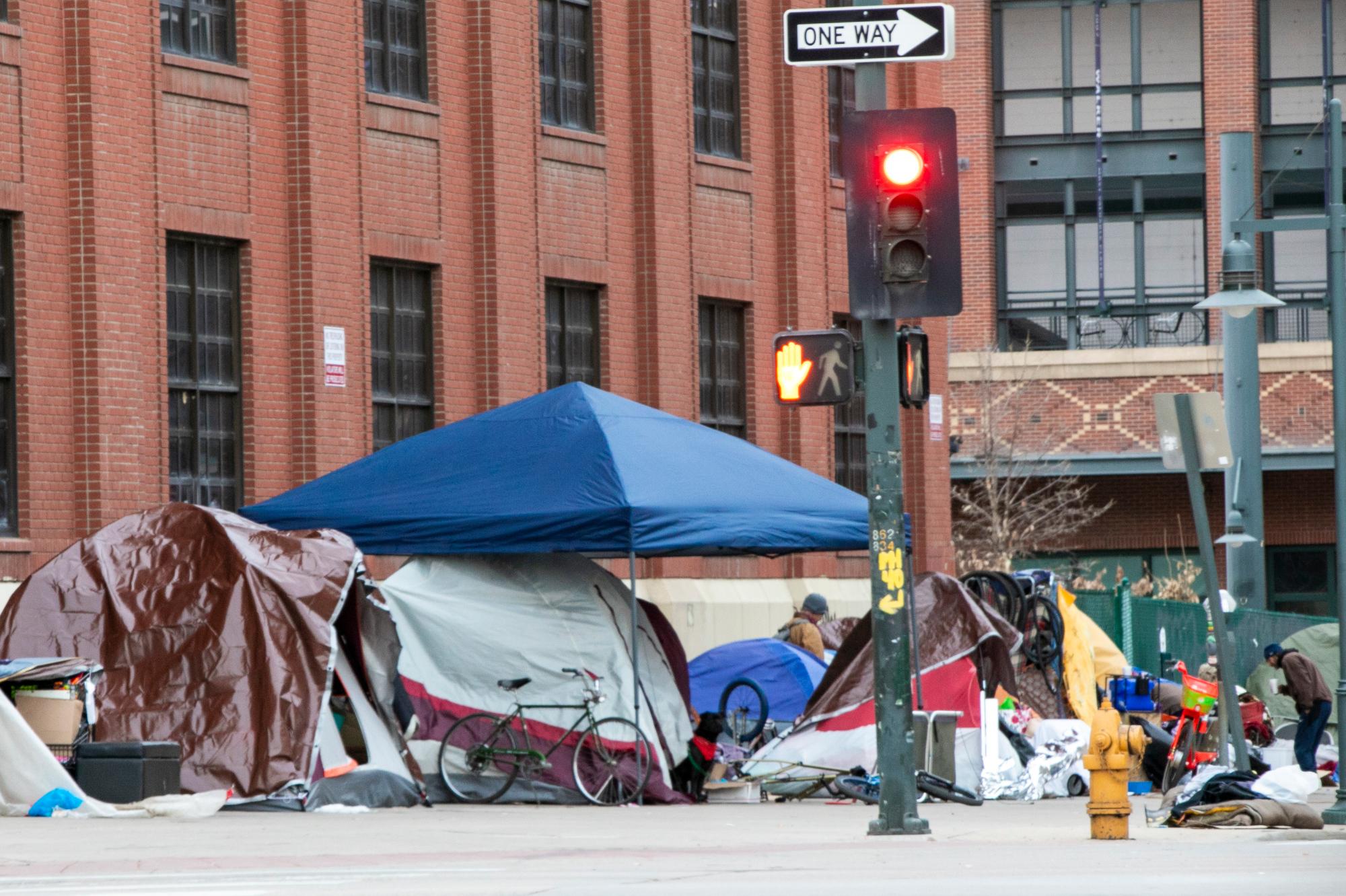
"There is nothing compassionate about allowing people to rot on the streets," the group wrote. "The Department of Housing Stability has confirmed over and over that there is room in the shelters, hotel rooms, SOS camps, and even places for pets. Anyone left on the streets is living there defiantly. For the mentally ill and severely addicted we need stronger involuntary commitment laws to get them into care and treatment. We also need more inpatient treatment facilities."
Parvensky, of the Colorado Coalition for the Homeless, said things have become notably worse since the ban passed.
"It clearly hasn't solved the problem of homelessness in Denver or in metro Denver," he said. "In fact, it's exacerbated it and made it more visible and created more negative impacts on neighborhoods and businesses than was the case 10 years ago, when it was enacted.
"It's also made it more difficult for us to connect the individuals, once we have a resource for housing or health care for them, because it's harder to find them after they get displaced," he said.
Parvensky was stunned that neighboring Aurora recently passed a camping ban of its own.
"I said to the mayor of Aurora, that, you know, 'If camping bans work, then Denver would not have people living on the streets.' Them replicating a policy 10 years after seeing it fail in Denver is the definition of insanity: Do the same thing over and over and expect a different result. So we need a different balance. We need to work together on real solutions."
Last week, a coalition of homeless advocates from various groups threw a week of actions called "Decade of Doom," raging against the camping ban.
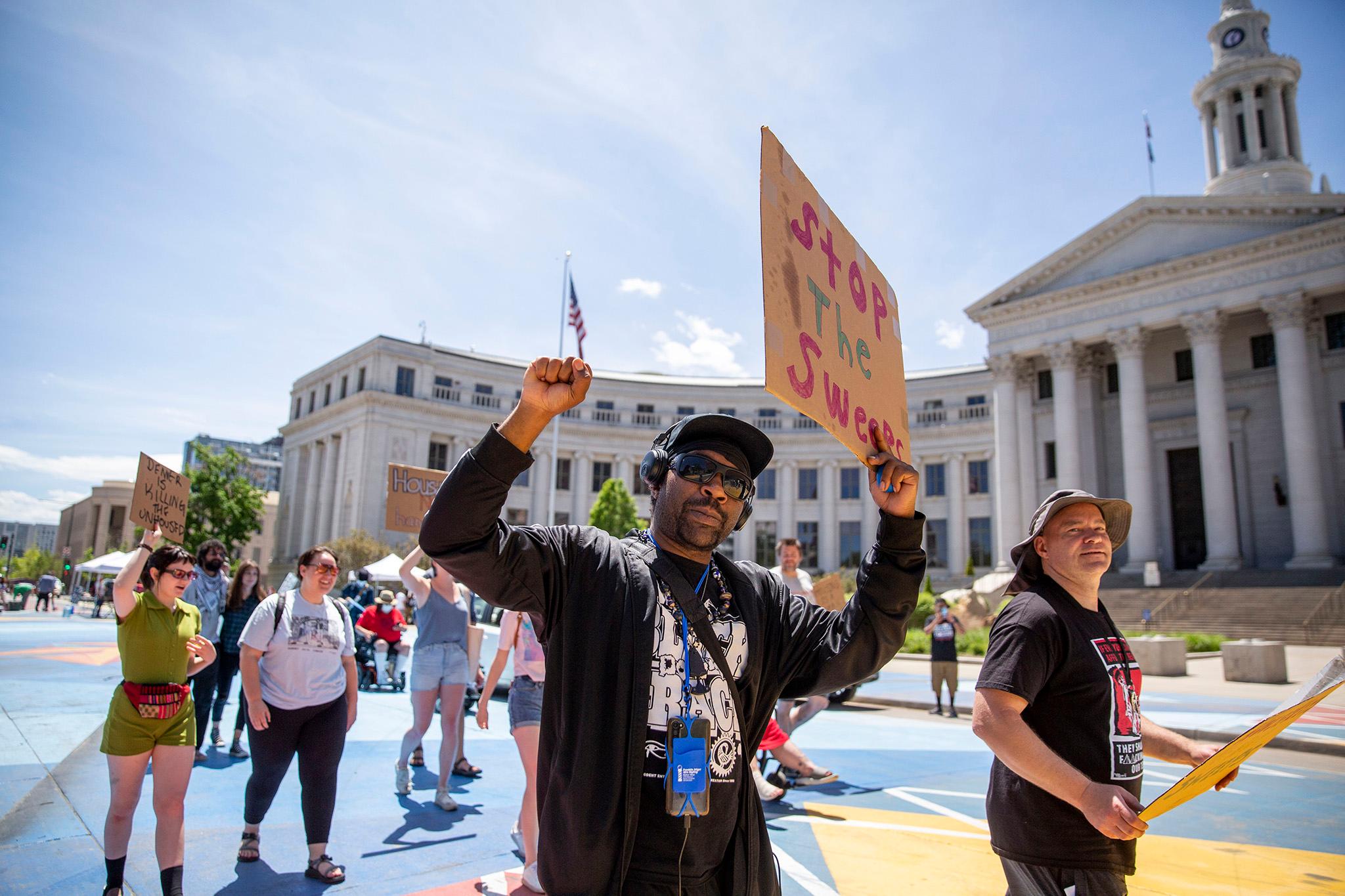
Kenny White was among dozens who addressed the current council -- including some of the members who were around when the camping ban passed: Herndon, who supported it, and at-large members Ortega and Kniech, who did not.
"Some of you all have been here for many, many years, through this decade of chaos that's been created to protect business interests and not human lives," White said. "So I'm just here today to speak to what many people cannot.
"I've been homeless and am now un-homeless," he continued. "I've been able to see both sides of what happens to people who try to protect human beings over business interests and corporate money. And I've seen what happens to the homeless who are treated less than dogs, who are treated less than human beings. And it's chaos, chaos."
He described reforms over the past decade as "not good enough," adding, "The shelters have not improved. The cops have not improved. Things have not improved over this decade, trying to make this law ... so you can sweep human lives under the rug. It's unacceptable, and it's disgusting."
When the public comment period formally ended, the activists refused to quit speaking until everybody had been heard. Nearly every councilmember -- including those who a decade ago opposed the ban -- left the room. Candi CdeBaca was the only member who stayed.
Looking back over how the city has addressed homelessness in the past decade, Loeb sees some improvements.
He appreciates the Safe outdoor spaces program, hotel rooms opening up to unhoused people, more affordable housing developments and greater multiracial leadership among advocates.
"They've done better in recent times," he said. But not enough. "They have not come up with creative strategies in all of this time to avoid the very serious incursion, in the public domain, in public spaces, by people who have no way to take care of themselves."
Are people doing a better job listening to each other, as Loeb prayed all those years ago?
"No," he said recently. Solutions would be stronger if they would.
"Just shut up and listen -- it's a really hard thing for people to get through their heads," he said. "You have to come up with some common ground, folks. And you have to shut up and listen."

